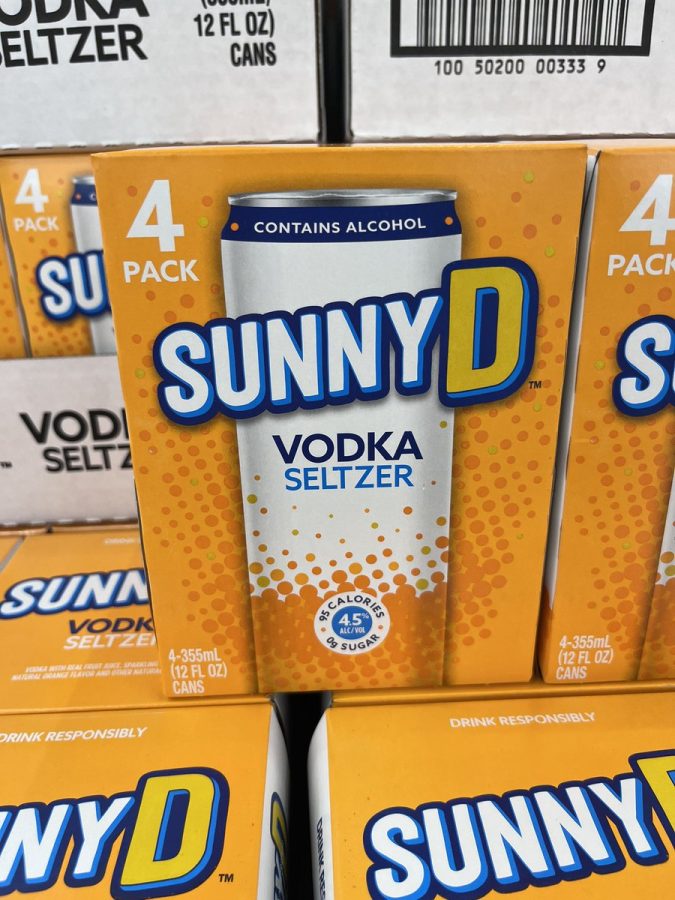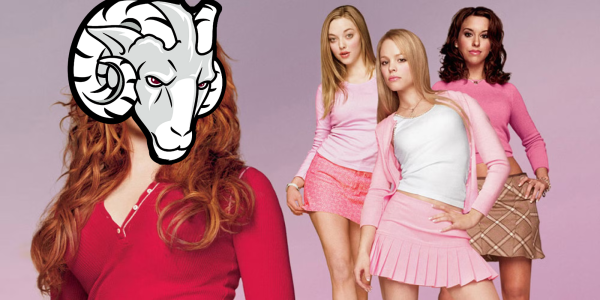Controversy Over SunnyD’s New Drink Clouds Image
Alcohol consumption is an issue Americans have always had to contend with. However, the problem might have just gotten that much more prevalent as SunnyD has begun marketing their newest line of adult beverages. Showcasing their signature citrus-flavored drink with a twist, being spiked with vodka to be sold in 12 o.z. can form, SunnyD’s newest business venture has caused quite a stir of controversy.
The basic controversy, however, of this 4.5% alcoholic beverage is not that it is delicious or revolutionary in any form, as it is comparable to brands like Happy Dad or White Claw, but that SunnyD’s branded image is something that many young adults and millennials would identify as something that is for children or something that would have drank as a child. This is where the anger and questions are stemming from, as a seemingly harmless and nostalgic beverage for many young adults has been transformed into something new. To say the least, it has gone full Nick-at-Nite.
The recent craze of vodka seltzers, or spiked seltzers in general, is something problematic. With roughly 6% of adults in the United States possessing an alcohol-use disorder, and 623,000 people between the ages of 12 and 17 having a similar disorder, alcoholism and binge drinking are only two of the seemingly infinite problems and obstacles that our adult population faces and struggles to overcome daily. Yet, it is the growing number of choices of drinks in the market that propel these problems to new heights. This idea ties into the basic principle that with more variety comes more opportunity, and with more opportunity comes freedom. In this case, it is the freedom that is the most dangerous.
Variety is one of the key issues when it comes to advertising for brands. It is what sets them apart from competition and allows name recognition to take hold and consumers to find their favorite. But with alcohol, and room for experimentation with such addictive substances, it can cause people with bright futures or prospects to not only crash and burn, but never begin their paths. The simple truth when it comes to alcohol is that brands need accountability, and this means questioning concepts in planning stages, especially for brands that cater to minors first like SunnyD.
SunnyD released a statement nodding to this idea: “We are committed to responsible practices and marketing is directed to consumers of legal drinking age.” However, the issue that many find in SunnyD’s statement is that, whether they choose to admit it or not, they are a brand for adolescents as their main line is something that countless children in the United States enjoy daily. The children who grow up drinking their main line are conditioned to be more loyal to their brand and are more likely to develop a drinking problem or habit when they reach the legal drinking age simply because of the grip SunnyD has on children and the choice that their spiked beverage gives.
There is no force aside from the government which could force SunnyD to reverse course and not sell their products. But, it is also not the job of governments, such as Canada, who is taking actions as a result of marketing schemes similar to those of SunnyD’s, to pick up slack when brands choose to be negligent of the real impact that they make as a result of careless action.
Ultimately, it is not governments and legislation or brands and liable negligence that ultimately is to blame. At the end of the day it is the consumers who choose to spend their money and patronize certain brands or products who hold up the markets. Simply put: if there are enough people who are outraged by SunnyD’s marketing scheme to increase profit margins and make their board members that much more wealthy, people will choose not to buy this new product and, through their purchasing power, tell corporate executives that we are through with manipulative strategies that harm greater society.
But, unfortunately, this is unlikely, so the question would be, what can we do? I’d suggest one thing: continue to call out corporations who have the responsibility to be responsible. We all know stories of actors, celebrities or maybe even family members who have been affected by alcohol abuse. This product is something that cannot be argued to help problems similar to, or exactly like, alcohol abuse, and it is up to us to make sure that we make others know that we need to not only think smarter, but act and be smarter with how we choose to impact society. One way that we can begin is by protecting our youth who can be impacted or influenced, or other people who can find connections and start down dangerous treks.
Michael Duke, GSB ’26, is undecided from Scottsdale, Ariz.













































































































































































































